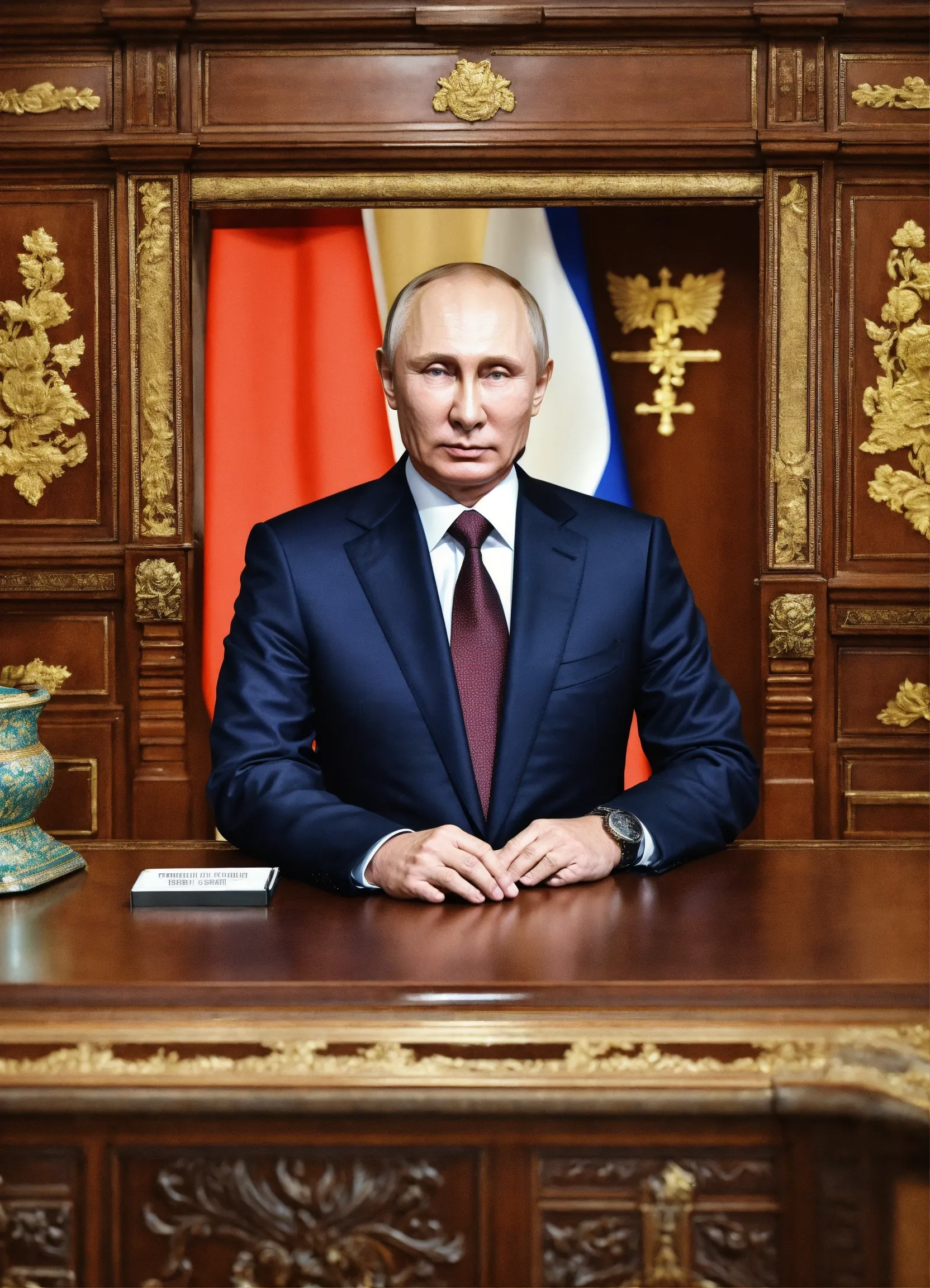In response to Macron's remarks, Putin threatens nuclear conflict
Outline of the Article
- Introduction
- Setting the context: Macron's remarks and Putin's response
- Understanding Macron's remarks
- Macron's comments on NATO and European security
- Putin's reaction: Threatening nuclear conflict
- Analysis of Putin's statement
- Potential implications of Putin's threat
- Global concern and diplomatic reactions
- Evaluating the risk of nuclear conflict
- Historical context and present-day tensions
- De-escalation efforts
- Diplomatic initiatives and crisis management
- Impact on international relations
- Shifting dynamics and alliance structures
- Conclusion
- Summary of key points and future outlook
In response to Macron's remarks, Putin threatens nuclear conflict
In recent geopolitical discourse, the world has been gripped by escalating tensions between two major powers: France and Russia. This turmoil stems from a series of statements made by French President Emmanuel Macron, which were met with a chilling response from Russian President Vladimir Putin. Understanding the nuances of these remarks and their potential consequences is crucial in navigating the complex landscape of international relations.
Macron's Remarks: A Critique of NATO and European Security
Emmanuel Macron, known for his outspoken nature, raised eyebrows with his recent comments regarding NATO and European security. In a bold critique, Macron questioned the efficacy of NATO and suggested that Europe should reassess its reliance on the alliance for defense. He highlighted the need for European countries to bolster their own security measures, independent of NATO's umbrella.
Putin's Reaction: A Stark Warning of Nuclear Conflict
In a swift and alarming response to Macron's remarks, Vladimir Putin issued a grave warning, suggesting that Russia could engage in nuclear conflict if provoked. Putin's statement sent shockwaves through the international community, sparking concerns about the escalation of tensions between Russia and NATO-affiliated nations.
Assessing the Potential Implications
The prospect of nuclear conflict, even if merely hinted at, carries significant implications for global stability. The international community has been quick to condemn Putin's threat, emphasizing the need for de-escalation and diplomatic solutions. However, the lingering uncertainty surrounding Russia's intentions casts a shadow over diplomatic efforts.
Understanding the Risk of Nuclear Conflict
To comprehend the gravity of Putin's threat, one must consider the historical context of nuclear warfare and the current geopolitical climate. While the likelihood of a full-scale nuclear conflict may seem remote, the specter of nuclear proliferation and proxy conflicts looms large. This underscores the importance of maintaining open lines of communication and pursuing diplomatic channels to defuse tensions.
Pursuing De-escalation Efforts
In response to Putin's saber-rattling, diplomatic initiatives aimed at de-escalation have gained momentum. From high-level negotiations to grassroots peace initiatives, stakeholders are exploring every avenue to prevent a catastrophic escalation of hostilities. The success of these efforts hinges on mutual trust and a willingness to compromise for the greater good of global security.
Impact on International Relations
The fallout from Macron's remarks and Putin's response reverberates far beyond the corridors of power in Paris and Moscow. It has prompted a reevaluation of traditional alliances and geopolitical strategies, forcing nations to reassess their roles in an increasingly uncertain world. The delicate balance of power is in flux, demanding nimble diplomacy and strategic foresight.
Conclusion
The exchange of words between Macron and Putin underscores the fragility of global peace and the importance of responsible leadership in times of crisis. As tensions simmer and rhetoric escalates, the world watches with bated breath, hoping for a peaceful resolution to this precarious situation. In the face of uncertainty, dialogue remains our best hope for averting catastrophe and building a safer, more secure world for future generations.
FAQs
Are Macron's remarks a departure from France's traditional stance on NATO?
- While Macron's comments may seem provocative, they reflect a broader trend of European leaders reassessing their reliance on traditional security alliances.
What prompted Putin's drastic response to Macron's remarks?
- Putin's reaction can be seen as a strategic move to assert Russia's dominance on the global stage and deter any challenges to its perceived sphere of influence.
How are other NATO member states reacting to the escalating tensions?
- NATO member states are closely monitoring the situation and reaffirming their commitment to collective defense while simultaneously seeking avenues for de-escalation.
What role does diplomacy play in resolving the crisis?
- Diplomacy serves as a crucial tool for easing tensions and finding common ground among conflicting parties, offering a pathway to peaceful resolution.
What measures can be taken to prevent the escalation of hostilities into a full-blown conflict?
- Robust dialogue, confidence-building measures, and a commitment to international law are essential in preventing the situation from spiraling out of control.


إرسال تعليق